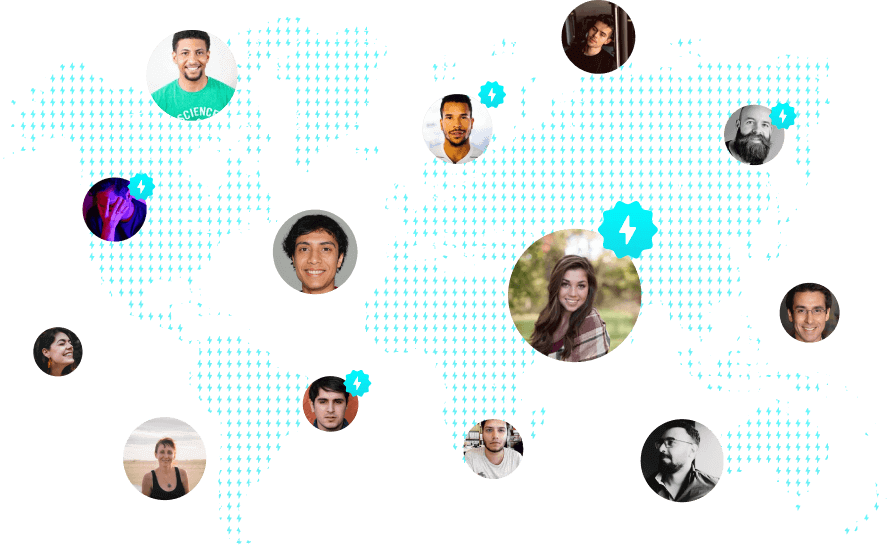How HR Can Help Build a Resilient Organization
How HR Can Help Build a Resilient Organization
COVID-19 has changed the way we work, communicate, and conduct business. Some of these changes, such as work-from-home, virtual business meetings, and flexible working hours, are here to stay. This is the new normal.
To succeed and thrive in this new normal, we not only need to quickly adapt to the changes but also work on building a resilient organization powered by a resilient workforce.
Why has Resilience become so important now?
Resilience is the ability to recover quickly after a difficult time or experience. For businesses, it means having the capability to survive the tough times, adapt to the changes, and succeed despite the challenges.
Perhaps this is why the IT research and advisory firm Gartner is urging organizations to embrace resilience rather than just focus on efficiency. In an article titled Build Organizational Resilience for Today and Tomorrow, Gartner says, "As business strategies continue to evolve, organizations will need to take deliberate action to prioritize resilience and not just focus on efficiency if they want to succeed in their strategic ambitions."
They couldn't be more right. In today's scenario, when we are struggling to get through the basic day to day activities, it is far more important to be resilient than efficient. In fact, we can become efficient only if we are resilient enough.
How HR can help build a resilient organization?
A resilient organization is a function of a resilient workforce. So if we want to build a resilient company, we need to start with the people.
Here's what HR can do:
1. Create an environment of trust: This is the most important thing HR can do to make their organization resilient. When people working together trust each other and their leaders, it becomes easier for them to share their concerns and ideas and be open to suggestions and guidance from their peers and managers. This kind of positive engagement ensures that employees work without the additional stress of second-guessing themselves or their team members. And in times of difficulty, this trust helps employees work together to find a winning solution. In the current scenario, it also means trusting employees working from home to do their work without constant follow-up or unnecessary supervision.
2. Lead with Transparency: Transparency encourages trust. That is why it is critical to share important information with employees on time and provide them with easy access to the tools they need to do their work. Transparency also includes keeping employees informed about the organization's goals, how they fit in, and what you as HR can do to help them overcome challenges they may face in doing their work. Having a clear picture of where the organization is headed and how they fit in keeps employees engaged productively and motivates them to do better.
3. Encourage two-way communication: Open and easy two-way communication is the hallmark of resilient organizations. HR should encourage leaders and managers to communicate with their teams and create an environment where the employees are comfortable approaching their leaders with ideas and suggestions that can make the workplace better, their jobs easier and meaningful. A strong communication channel also enables the employees to connect with their leaders with questions regarding their career aspirations or job stability without the fear of repercussions.
4. Facilitate learning and skill enhancement: Not having the adequate skills to do their work effectively or to move up in their chosen fields is a significant stressor for most employees. HR should conduct periodic assessments to understand each employee's learning requirements and make the necessary resources available to them. Additionally, they should also guide their employees on what they can do to upskill themselves and be ready for future opportunities.
5. Eliminate the 2 R's: Rigid and redundant processes are the enemies of a resilient organization. They deter employees from achieving their full potential and waste precious time with tasks that add no value. In the long run, this creates stress and impacts employee productivity.
6. Rethink the workflow: How workflows in the organization from one function to another and from one person to another is as important as how it is done. For an organization to become truly resilient, it is necessary for HR to study the workflow, find the problem areas and address them before they start affecting daily operations and business outcomes. If left unaddressed for a long time, such issues can create confusion and lead to unhealthy competition and animosity among teams.
7. Encourage employees to own their processes: A resilient workforce is not dependent on their leaders and managers for their everyday tasks. Employees should be encouraged to take complete ownership of their tasks. Process ownership helps work get done faster and inculcates a sense of responsibility and accountability. For HR it is also a great opportunity for identifying future leaders.
8. Allow employees to fail: Resilience does not come from working within a comfort zone. It comes from stretching boundaries, trying new things, failing, and learning to bounce back from the failure to try again. If employees are punished for their failures, they will shy away from taking up tasks or trying new processes.
9. Talk about mental health: Yes, you heard us right. It's time to openly talk about mental health, provide employees a safe space to share their problems, and help them find viable solutions. Being resilient does not mean the absence of mental health concerns. It means being aware of the triggers and knowing how to deal with them.
Now more than ever, employees need a space to let their guard down and talk to people about how they feel, where they are struggling, what help they need to manage the stress that comes from working from home amidst a pandemic.
The road to building a resilient organization is not difficult. But it needs constant and continuous effort from HR to motivate the employees to work with them to become resilient and build a resilient organization.
19 Mar 2024







